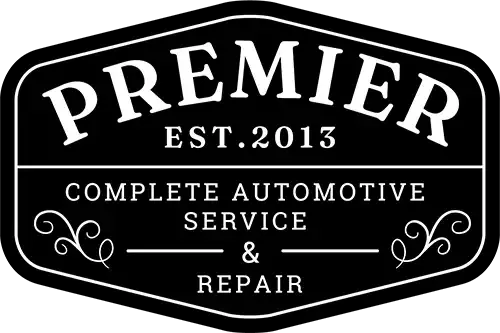BRAKE SERVICES
Your brake system comprises numerous components, all enduring significant stress influenced by individual driving habits. Whether you're aggressive in starting and stopping, tend to "ride" your brakes, or frequently haul heavy loads or trailers, each factor impacts brake longevity. Ensuring your brakes operate at optimal efficiency is crucial for your safety on the road. At Premier Auto Care, we understand the gravity of this responsibility. When conducting a comprehensive brake service or repair, our team meticulously examines your entire braking system, considering various factors to guarantee peak performance. This includes assessing brake fluid quality and conducting a brake flush if necessary, ensuring your brakes are primed for any situation. We take pride in our commitment to thoroughness and attention to detail, providing you with the peace of mind that your brakes are prepared to halt your vehicle safely whenever you need them.
What kind of driver are you?
Aggressive with hard turns and fast stops? Stopping the brakes or soft taps? Your brake life directly ties into how you drive and brake pads will need to be changed more often based on your driving habits and the number of miles you travel. It isn't just how long it has been since your last brake job.
What brand of brakes did you use last time?
The material in brake pads can vary greatly from one manufacturer to another. There are pads that are composites of organic compounds, semi-metallic pads, and ceramic pads, and their wear rates are all different.
Do you often tow a trailer, haul heavy loads, or drive through steep terrain?
The extra braking force needed for any of those will wear out brake pads faster. With all that in mind, brake pads typically last anywhere from 35,000 to 60,000 miles, depending on the above factors. What's maybe more important to know, though, is the warning signs that you do need new brakes.
Brake problems come in a variety of forms. Worn brake pads cause squeaking or grinding noises, especially when the brakes are applied, but sometimes constantly. Typically, the sound will vary with the speed of your car, and braking will alter the noise you hear. Bad brakes affect performance too. If you feel like you have to hit the pedal harder than normal to stop your vehicle, the brakes feel weak, or your car pulls to one side whenever you depress the pedal, you likely have a malfunctioning master cylinder, sticking brake caliper, or collapsed hoses. Symptoms may be erratic, sometimes only popping up occasionally, but should not be ignored. Warped or worn rotors damaged by high heat or worn brake pads will cause your car to pulse or vibrate whenever you hit the brakes. This can be damaging to other components, decrease brake performance, and is generally annoying.
Things to watch out for include:
- Longer stopping distances. If it takes longer, you have a problem.
- Low brake fluid—your brakes are worn out or you have a leak!
- Excessive brake pedal travel. If you are pushing your brake pedal further towards the floor, there is an issue.
- Brake pedal feels "soft" or "spongy" underfoot Vehicle pulls to one side while braking
- Pulsation or vibrations through the brake pedal or steering wheel while braking.
- The tendency for one or more wheels to lock up and skid while braking means one of your brakes is working harder than the other. Your brakes don't always wear at the same pace.
- Loud Noises! Groaning, screeching, squealing, or grinding sound while braking is never a good sign.
If you are experiencing any of the above problems, or your vehicle needs any other repair or maintenance, don't hesitate to call or come by. Our mechanics have the knowledge and ability necessary to get your vehicle repaired quickly, correctly, and efficiently. Our team at Premier Auto Care
can diagnose any issue of symptoms including squeaking or grinding noises, unresponsive brake pedal, or vibrations.
SERVICES
SUNDAY: CLOSED
MONDAY: 07:30 AM - 05:00 PM
TUESDAY: 07:30 AM - 05:00 PM
WEDNESDAY: 07:30 AM - 05:00 PM
THURSDAY: 07:30 AM - 05:00 PM
FRIDAY: 07:30 AM - 05:00 PM
SATURDAY: CLOSED
321-567-4890
Serving Cocoa Beach, East Orlando, Edgewater, Merritt Island, and beyond

